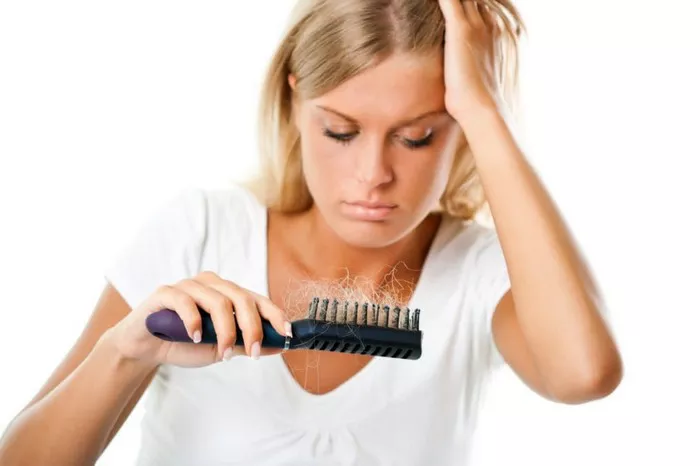Hair loss is a common concern that can be attributed to various factors, ranging from genetics to nutritional deficiencies. One such deficiency that has garnered attention in recent years is low hemoglobin levels, a condition known as anemia. In this article, we explore the intricate relationship between low hemoglobin and hair loss, shedding light on how this deficiency can impact the health of our locks.
Understanding Hemoglobin: The Oxygen Carrier
Hemoglobin is a protein found in red blood cells, and its primary function is to transport oxygen from the lungs to the rest of the body. This vital protein ensures that every cell receives the oxygen it needs to function optimally. When hemoglobin levels drop below normal ranges, a condition known as anemia ensues, leading to a cascade of health issues – one of which is hair loss.
The Hair Growth Cycle: A Delicate Balance
To comprehend the connection between low hemoglobin and hair loss, it’s crucial to understand the hair growth cycle. Hair follicles go through phases of growth, rest, and shedding. An interruption in this cycle, caused by factors like nutritional deficiencies, can lead to hair loss. Hemoglobin deficiency, specifically, can disrupt the balance needed for healthy hair growth.
Hemoglobin and Oxygen Supply to Hair Follicles
Hair follicles, like any other part of the body, require an adequate supply of oxygen and nutrients to thrive. Hemoglobin plays a pivotal role in this process by ensuring that oxygen is transported to the cells, including those in the scalp. When hemoglobin levels are low, the delivery of oxygen to the hair follicles is compromised, potentially leading to weakened hair and increased shedding.
Iron Deficiency Anemia: A Common Culprit
Iron is a crucial component of hemoglobin, and its deficiency is a leading cause of anemia. Iron deficiency anemia can occur due to insufficient dietary intake, poor absorption of iron, or chronic blood loss. Since hair follicles are highly sensitive to changes in nutrient and oxygen supply, iron deficiency anemia can have a direct impact on the health of the hair.
The Impact on Hair Growth: An Overview of Studies
Several studies have explored the relationship between low hemoglobin and hair loss. While the exact mechanisms are not fully understood, research suggests that the reduced oxygen supply to hair follicles in individuals with anemia may lead to the miniaturization of hair, making it more prone to shedding. Additionally, anemia is often associated with telogen effluvium, a condition characterized by excessive shedding due to a disturbance in the hair growth cycle.
Symptoms of Anemia and Hair Loss: Connecting the Dots
Identifying the symptoms of anemia is crucial for understanding its potential impact on hair health. Common symptoms include fatigue, weakness, pale skin, and shortness of breath. Hair loss, particularly in the form of increased shedding and thinning, is often observed in individuals with untreated anemia. Recognizing these symptoms early on can prompt timely intervention and management.
Addressing Low Hemoglobin: Treatment and Prevention
The good news is that addressing low hemoglobin levels can positively impact hair health. Treatment typically involves iron supplementation and dietary changes to boost iron intake. Foods rich in iron, such as lean meats, leafy greens, and legumes, can play a crucial role in replenishing iron stores. However, it’s essential to consult with a healthcare professional before starting any supplementation to determine the appropriate dosage and identify the underlying cause of anemia.
Holistic Approach to Hair Health: Beyond Hemoglobin
While addressing low hemoglobin is crucial for combating hair loss, adopting a holistic approach to hair health is equally important. Nutritional balance, stress management, and overall well-being contribute significantly to the vitality of your locks. Ensuring a diet rich in not only iron but also other essential nutrients, such as vitamins A, C, and E, is vital for comprehensive hair care.
See Also: How Does Smoking Cause Hair Loss: A Comprehensive Guide
Conclusion: Nourishing Your Locks from Within
In conclusion, low hemoglobin levels can indeed contribute to hair loss by disrupting the delicate balance of the hair growth cycle. Recognizing the symptoms of anemia and seeking prompt treatment can mitigate the impact on hair health. However, it’s crucial to approach the issue holistically, considering factors beyond hemoglobin alone. A well-rounded approach that addresses nutritional deficiencies, promotes a healthy lifestyle, and seeks professional guidance ensures the best possible care for your hair. Remember, your locks are a reflection of your overall well-being, and nourishing them from within is the key to a vibrant and healthy mane.


